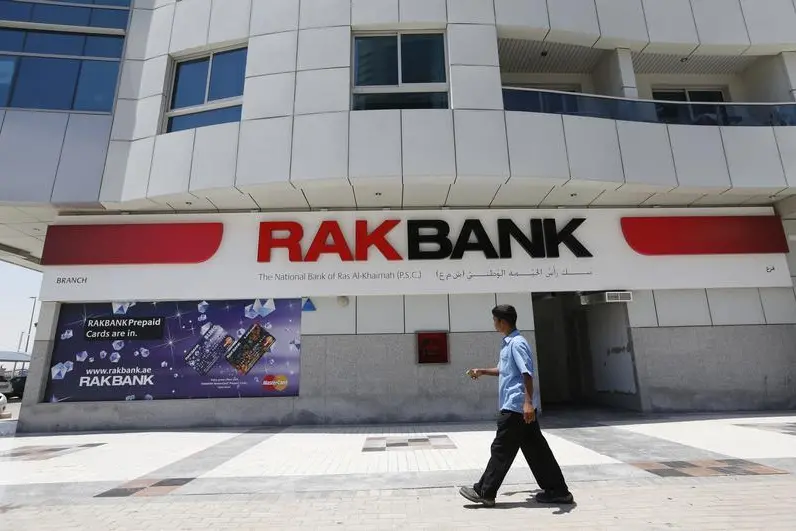PHOTO
Ras Al Khaimah Free Trade Zone (RAK FTZ) is in the midst of a major expansion, which will see a host of new infrastructure, tenants and specialised facilities spring up in the coming years.
Acting as an important driver of economic growth, and recently ranked as one of the best in the world, the free zone was established 15 years ago and today boasts over 8000 businesses from 100 different countries. The development will support the emirate's long-term vision of increasing diversification through industry, health, education and tourism.
However, with occupancy at RAK FTZ standing at nearly 100% last year, the next goal will be to allocate additional land for future growth. Authorities have already moved to address manufacturers' concerns about the availability of power supply, announcing in February that all RAK FTZ Technology Park warehouses and staff accommodation had been connected to the Federal Electricity and Water Authority's national grid, paving the way for long-term expansion.
"We continue to support industry, which is the historical strength of Ras Al Khaimah," Peter Fort, the former CEO of the RAK FTZ, told media last year. "But in parallel we are focused on enhancing some of the other sectors, in particular the services and educational sector."
Significant growthFTZs are a significant contributor to economic growth. According to the latest figures from RAK's Department of Economic Development, the emirate's GDP, including free zone income, reached Dh30.95bn ($8.43bn) in 2013, with free zone revenue contributing 16.3% of the total.
Investors within the free zones benefit from a comparatively lower cost of doing business, tax exemptions and expansive business services. Business costs are up to 50% lower than elsewhere in the UAE, with starter packages priced at $5000 annually. As with all free zones, businesses do not pay any corporate or income taxes, they are permitted 100% ownership of their ventures and can fully repatriate their profits. However, companies are not allowed to trade with the local market unless they have a local partner.
The free zone's value for money was one of the reasons why fDi Magazine, a publication from The Financial Times, named RAK FTZ as one of the world's top-10 free zones for small and medium-sized enterprises (SME) in its "Global Free Zones of the Year" award. In addition, incentives, facilities and ease of doing business were also cited for reasons behind its eighth-place ranking on a list that included FTZs in Zurich, Geneva and Edinburgh. The zone was also praised for offering "convenient registration and cost-effective packages with the aim of attracting more SMEs and becoming a hub for these companies".
RAK FTZ benefits from a favourable geographic position; the zone is home to five ports with a combined annual throughput of 50m tonnes, and it is located just 45 minutes from Dubai International Airport (DIA). While DIA's dedicated freight operations have recently shifted to Dubai's Al Maktoum International Airport, travel time is still less than 90 minutes.
Future expansionThe free zone is continuing to grow, and in July 2014 authorities announced plans for significant new investment in infrastructure, including a new health care segment. Facilities will include a nursing school, labs and wellness clinics in support of the Sheikh Khalifa Specialist Hospital, which officially opened in February 2015. Construction of the new health segment is expected to begin during the first half of 2016.
RAK FTZ has expanded considerably in size and scope since its establishment in 2000, and it now features businesses in 50 sectors. The zone offers four separate specialised clusters, including business, technology, industry and academia.
In manufacturing, a number of companies have entered or expanded their operations in recent years. Streit Group, for example, announced in June 2014 that it planned to triple the size of its existing FTZ facilities to 4.5m sq ft, a project entailing 350 new jobs. Expansion plans also include the establishment of new staff accommodation, a glass factory, pre-fabrication facilities, a helipad, fuelling stations and support manufacturing facilities. The Dh300m ($81.6m) expansion was officially inaugurated in February 2015.
The FTZ is also hoping to attract new international schools to the academic zone, with India's Birla Institute recently announcing plans to "dramatically increase" the size of its operations there. A growing emphasis on attracting new tenants from Asia also saw the FTZ expand its marketing activities to include China, South Korea and Japan, and authorities have established a special office and business support team with the requisite language capabilities to assist prospective Asian businesses.
© Oxford Business Group 2015





















